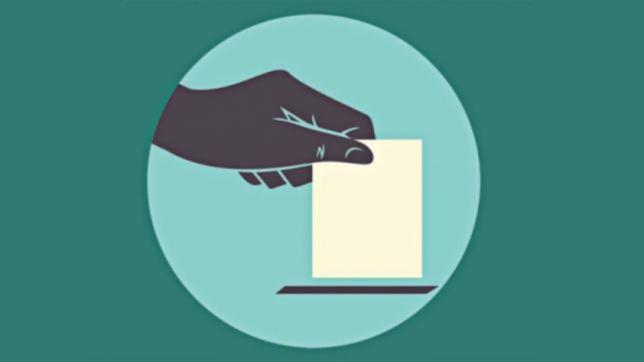ATTN: Politicians- We’re your bosses, don’t ignore us
MLA ignores correspondence from community, makes time to attack on social media
It’s a complicated relationship, that between politicians and their taxpayer employers.
Residents complain elected officials are full of hot air and get nothing done, while politicians, well, what do they do? I’m not sure because mine doesn’t respond to her constituents.
OK, so maybe we see more “it’s complicated” relationships on Facebook.
As Manitoba heads into another provincial election, there have been stories about the lack of candidates in some ridings. One party went on the record saying combative relationships with citizens is why nobody wants to run for public office anymore.
But let’s examine said hostility toward politicians. And let me be transparent upfront: I’ve never campaigned for any political candidate, I’ve never donated to, nor have I belonged to a political party – ever. In fact, I have less than zero interest in politics. (Is that mathematically possible?)
My MLA in Winnipeg is NDP’s Nahanni Fontaine. I’ve never spoken to her, I’ve never seen her in public, I’ve never met her, I don’t know her. I’m not aware that she’s ever reached out to my household (though much of my time is spent in West Hollywood) to see how things are in the community, aside from her telling us via junk mail that she’s doing a wonderful job. I know little about her except to say that she doesn’t give a flying fig about us. How do I know? I’ll get to that in a moment.
I’d love to have a conversation to get to know my employee and share my thoughts on the state of my neighbourhood. After all, isn’t that how we get things done: having open dialogue with changemakers?
In the past, I’ve had luck contacting my city councillor with concerns about Winnipeg. Roughly 15 years ago, I published a neighbourhood newsletter that was distributed throughout West Kildonan and Garden City. He was always available for conversations and it was always appreciated that he made the time. (It IS his job, after all.)
The one time I needed assistance from Fontaine – almost exactly one year ago, actually – I heard nothing. I emailed twice, even tweeted asking how long it takes her to get back to her constituents. Crickets.
The time she did respond, however, was when I tweeted her on Dec. 23, 2016, joking about a Christmas card she sent to the community where she’s playing with her dog and one photo looks as if she’s kicking it on the Legislature grounds. She replied minutes later asking, “are you kidding me? That’s what you see?” Other than that, I’ve never had any interactions with her.
When I scrolled Twitter (that’s what it was called at the time), I saw a pattern on her feed. It was one-way dialogue. It was her megaphone and she had no interest in hearing what anyone had to say in response to her posts. She’d blast out some accusation or attack or critical remark and let the mob carry the conversation. Oftentimes, she’d be asked questions but there would be no reply. When she was challenged, sometimes she took the bait and got combative – which struck me odd seeing as, you know, we’re her bosses.
Fast forward to this election campaign where I did notice Fontaine spreading disinformation on her page. She took a swipe at a fellow candidate accusing him of illegal behaviour. In true political style, she couldn’t simply address a question about lawn signs, she had to mudsling a candidate in the process – as inaccurate as her statement was.
On Aug. 15, she posted, “I appreciate folks reaching out wanting to put up my election lawn signs because a man running as an independent in St. Johns is putting up his signs. It’s a municipal bylaw you can’t put up lawn signs until the writ drops. I follow the rules. Some people don’t.”
FACT CHECK: I sent Elections Manitoba her post and they told me, “Manitoba election laws do not place limits as to when campaign signage can be used.”
So, with that sort of negativity coming FROM a politician, it’s none too surprising that politicians don’t get much love in return from the people they represent. And, it’s likely why Liberal Party of Manitoba leader, Dougald Lamont, told CBC, “People are outright hostile in a way that they shouldn’t be, so that makes it a challenge sometimes for people to get involved.” Taken out of context and flipped around, you could say he’s referring to politicians, right?
With her inaccurate statement about election bylaws, Fontaine is setting that exact tone. She’s getting people fired up to go after that candidate and turn us against him.
It’s a vicious circle, it is. People are hostile because they genuinely have a question or concern for the people paid to handle those questions or concerns, yet they get no response to those questions or concerns. How should we feel? Brush it off and go, “Meh, maybe he/she is just too busy.” Um, no, it’s their job. If they’re not responding to us then they’re not doing their job. Period.
Having said that, I understand when the social media mob is lobbing insults and derogatory comments at politicians that they have no obligation to engage – unless, of course, they want that combative relationship with constituents – though that makes them sick people if they focus their energy on that instead of being productive and getting stuff done.
With my attempts to reach Fontaine going nowhere, I began wondering if I should take it personally. My name is sort of well-known in Winnipeg thanks to my previous bestselling book and subsequent Winnipeg Free Press column. Was Fontaine ignoring me because she knew who I was and simply didn’t like me for whatever reason? Even still, I was contacting her with legitimate questions I sought help with. Like me or not, well… that whole “it’s your job thing” again.
To see — test, if you will — Fontaine’s commitment to building relationships and engaging in two-way conversations with all members of the community, my colleagues created Gmail accounts to see how soon, or if, she replies to folks in the neighbourhood.
We emailed questions to Fontaine beginning last October after she ignored my multiple messages. Of the names we created, Fontaine was notably contacted by Dwayne Rodie and Betty Dumont Dejardins who asked about provincial assistance programs and posed election questions respectively.
Three dupe accounts emailed Fontaine’s government-funded legislative email address on Oct. 24, 2022, and Sept. 19, 2023, and none got a response. None. Ever. In total — including from my actual email address, plus tweets — Fontaine ignored nine touchpoints from her, if we’re being technical, employers.
If you ignored nine direct messages from your bosses, could you still coast along in your job? I’ll answer for you: no. Why do we allow politicians to treat us this way? Do we just not care and already conclude that they won’t help us so why bother?
Outside of our email experiment I took it to the streets, as they say. In a very informal survey of local voters, I asked 16 people what they know and don’t know about incumbent Fontaine.
I’ve been around long enough to know that any criticism lobbed at an indigenous woman by a white man will be declared racist – by Fontaine herself, as seen repeatedly on social media – so I was mindful to ask “her people” (and don’t blast me for that term because it was used by several of my respondents) what they think of not only her behaviour but also her legacy as the MLA in our neighbourhood.
“She’s looking out for my people (indigenous) — specifically women,” said a West Kildonan resident. “I don’t think she likes men, to be honest. The tweets I’ve seen from her she’s always calling out guys for being sexist or whatever.”
About Fontaine’s legacy in the community, essentially asking, What has she done for you lately?, 15 of the 16 respondents couldn’t name anything she’d done to improve things at a provincial-government level in the neighbourhood. One said, “She cares about us (indigenous women).” The person couldn’t elaborate further only to say, “Searching the landfill, I think.” Arguably, not something specific to our neighbourhood but at least Fontaine’s known for something.
Speaking of arguing, Fontaine has a reputation of being a man hater through her tweets (Xs?) as highlighted in her bio where she declares herself an “Unapologetic Feminist.” There’s nothing wrong with defending your gender (or is it sex? I can never remember these days) but when it’s presented in such a way that I-ain’t-takin’-shit-from-no-man, well, again, it’s kinda your job to.
Let me flip it around: I had to take shit from women when I worked for other people. Was I picked on and targeted by all-female management teams? Yup. Did I deal with an abundance of estrogen that made me feel less than? I sure did, and I wasn’t paid with public money. (And don’t even pull the sexist thing with me because as a gay man, I often get along best with women, anyway. Don’t even go there.)
With posting this, one of my colleagues said, “She (Fontaine) is going to come at you over this.” Which had me think, “Why are residents fearful that their elected representatives are going to attack them?” It’s bizarre.
This makes you wonder why politicians feel communication should only go one way. Why must we listen to them yet they can give us the brush-off? Specifically, why do we let them get away with it? Lack of desirable candidates? Lack of interest? Do we simply think, “Well, he/she is the least worst so why not?”
The trouble with the political system in Canada is that we’re technically voting for two things with one ballot: who will represent our neighbourhood and who will be the leader of our province. You’re voting for two people even if you don’t want to.
It’s a lose-lose-lose if I don’t trust my NDP candidate and I don’t want another Conservative provincial government and I don’t have a Liberal candidate in my riding. Why bother voting then? (Full disclosure: I’ve voted in every election since I turned 18.) I understand, however, why people say their vote doesn’t count. In situations such as the above, it doesn’t – not for their own interests, anyway. If that voter personally doesn’t like one candidate and doesn’t like the leader of the other party, they’re left without any suitable options for their comfort. They’re not being true to their ballot. So, why vote?
The voter turnout percentage can be eye-opening to some people the day after an election. Historically, it’s used to illustrate how many people didn’t vote. Unless there’s some kind of shockingly high percentage, it’s not often framed as a positive result. Perhaps the intent is to shame us and say, “Hey, why aren’t you getting involved?”
The answer is… well, everything you just read.



